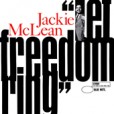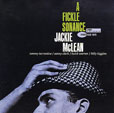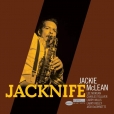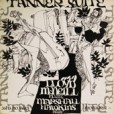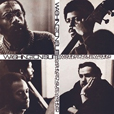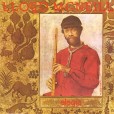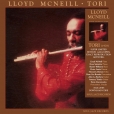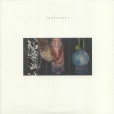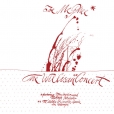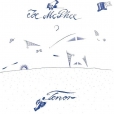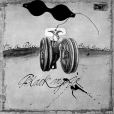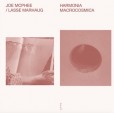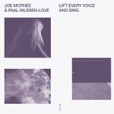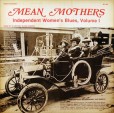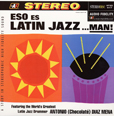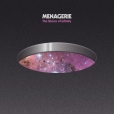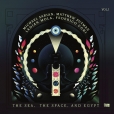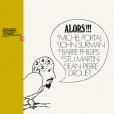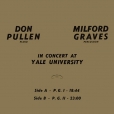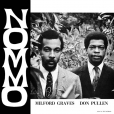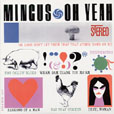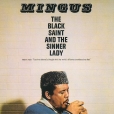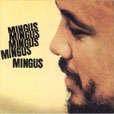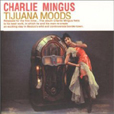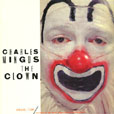Your basket is empty

The rivetingly lucid, acrobatic expression of raw emotion characteristic of this altoist, fronting the same unit which had recently recorded Sonny Clark’s masterpiece Leapin’ And Lopin’, including Tommy Turrentine, Butch Warren and Billy Higgins.
Supposedly Clark came across the music of the opener knocking around Monk’s apartment. Amongst five JM originals, the title track shows how hard bop was too hip to sit still or look back. Sundu is a tasty Clark blues.
The more expensive new LP is in the all-analogue Blue Note 80 Vinyl series.
Nutritious jazz duets between flautist LM (who has worked with everyone from Nina Simone to Mulatu) and bassist Marshall Hawkins (who took over from Ron Carter for Miles, and played on Donny Hathaway’s Everything Is Everything, the year after this recording, in 1970). Engrossing, gorgeous, good for the soul. Warmly recommended.
The flautist with Nana Vasconceles, Dom Salvador, Portinho, Cecil McBee and co in 1980. Spiritual jazz with strong Brazilian flavours. Lovely stuff.
Even at the age of eighty — Nation Time is fifty years old — Joe McPhee refuses to stand still or bask in nostalgia. For all its lovely strangeness — for a start, besides playing, he sings and recites — this LP elaborates lineages in his oeuvre initiated with John Snyder in the seventies, and sustained with Pauline Oliveros.
Lasse Marhaug is an old hand, young at heart, too. After thirty years of making electronic music — hundreds of releases, collaborations and projects — his name is synonymous with Norwegian noise music.
A one-of-a-kind, highly enjoyable, compelling mixture of free jazz and electronics, inspired by science fiction and early electronic music.
Recorded in St. Edmund’s Church, Oslo, on 13 December 2017.
Compositions by James Weldon Johnson and Thelonious Monk; also originals, including a tribute to Don Cherry.
Another humdinger in the Actions For Free Jazz series supervised by Smalltown Supersound.
Vinyl only, no digital. 500 copies, that’s it.
Chocolate Mena leading three lineups — featuring Joe Henderson, Jerome Richardson, Alfredo Armenteros, and co — through Lalo Schifrin and Duke Pearson arrangements of core Latin and Jazz classics.
A fourth LP of spiritual jazz by this feted nine-piece from Australia.
‘A stunning work, full of integrity and class… Essential’ (Echoes).
‘Wonderful record, full of some great Kamasi/Donald Byrd/even Art Blakey moments.’ (The Guardian).
Michael Sarian, Matthew Putman, Ledian Mola, Federico Ughi
The Sea, The Space, and Egypt Vol. 1
577 Records
A heartfelt tribute to Sun Ra.
Trumpet, drums, and the great man’s favoured Rocksichord; and up-and-coming Cuban bassist Ledian Mola, who adds vocals inspired by Cuban folklore.
Another winner from 577.
The illustrious clarinettist alongside John Surman, Barre Phillips, Stu Martin, and Jean-Pierre Drouet, in 1970. Iconic Futura cover-art by Avoine.
Thrillingly uncontainable, uproarious, wildly creative music, teeming with passion, protest, sex, orality, dread, blues, and the gospel truth. With Roland Kirk newly enrolled, Mingus passes his bass to Watkins… and it all kicks off. We can’t recommend this record strongly enough. It will do you good.
A masterpiece from the same few months in 1963 as The Black Saint And The Sinner Lady, adding a couple more players to its killer lineup of Booker Ervin, Jaki Byard, Charlie Mariano and co. A kind of testimonial match by the eleven-piece, doing over some of Mingus’ best tunes so far: he didn’t take a group back into the studio till 1970.
LP from Speakers Corner.
‘I am trying to play the truth of what I am. The reason it’s difficult is because I’m changing all the time.’ From 1957, hard on the heels of Pithecanthropus Erectus — hotter fire, and another masterpiece, featuring killer soloing from CM. On Haitian Fight Song: ‘I can’t play it right unless I’m thinking about prejudice and persecution, and how unfair is it. There’s sadness and cries in it, but also determination. And it usually ends with my feeling ‘I told them! I hope somebody heard me!’’ Reincarnation Of A Lovebird is here, too.
